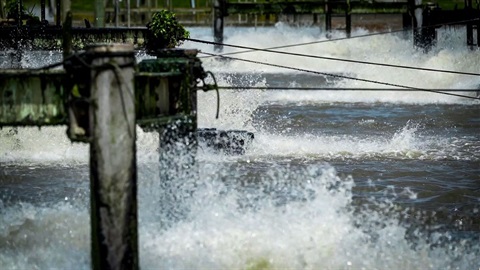Reduce your wastewater

Minimising waste isn't always about rubbish and recycling. On this page you'll find tips to help you prevent unnecessary waste of one of our most precious resources – water.
Wastewater and you
The average person in Palmerston North creates about 210 litres of wastewater each day.
Ninety-nine per cent of what comes into our wastewater plant is water. The remaining one per cent is made up of food scraps, oil and fat, poos, urine and toilet paper and the soap or detergent from your sink, shower, washing machine or dishwasher. It also contains things that shouldn't be going down your drain – like condoms, tampons and wet wipes, The only things that should ever go down your toilet are the three Ps – pee, poo and (toilet) paper.
This is where wastewater is generated in your home
8 easy things you can do to reduce wastewater at your whare
- You can save 6L of water by turning off the tap while you brush your teeth.
- You'll save up to 90L of water by reducing your 10-minute shower to 5 minutes.
- Only put your washing on when you have a full load.
- Use the half flush on your toilet if it's only urine.
- Fix a leaking tap – this can save 15L a day.
- Consider switching to a low-flow shower head. This could save up to 6L a minute and cut the cost of your hot water bill.
- Wash your veges in a sink of water rather than leaving the tap running.
- If you only have a few dishes, wash them by hand rather than using a dishwasher.
At Council we're also looking at new ways to manage, move and treat our wastewater. We've taken some steps already – for example, the new Pressure Sewer Policy. This allows for pressure sewer systems to be installed in areas that would be difficult to service with a conventional gravity sewer system, and for those areas to be connected to the sewer reticulation.
We also have a number of waste minimisation programmes, and are working to improve understanding about how to reduce waste. This will help reduce the volume of wastewater in the city.